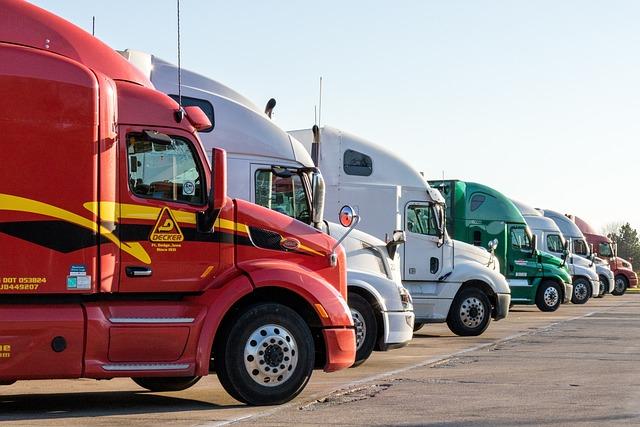Essential Steps to Start Your Own Trucking Business
Starting your own trucking business can be a lucrative venture, offering the freedom to run your operations while meeting the ever-growing demand for freight transportation. However, launching a successful trucking business involves careful planning, strategic thinking, and a thorough understanding of the industry.
In this blog, we'll guide you through the essential steps to set up a trucking business from scratch, helping you navigate through market research, obtaining necessary licenses and permits, securing financing, and creating efficient operational processes. Whether you're a seasoned trucker ready to take the plunge into entrepreneurship or a business-minded individual exploring new avenues, our comprehensive guide will provide you with the insights and tools needed to get your trucking business on the road to success.
Organize Your Trucks
One of the first critical steps in starting your own trucking business is organizing your trucks efficiently. This involves several aspects, including acquiring the right trucks for your operations, ensuring they meet regulatory standards, and implementing a system for their maintenance and tracking. Besides that, the truck beds should be organized to be loaded and unloaded easily. The team behind Tmat says you should consider using storage bins or Truck bed dividers to categorize and store goods and equipment effectively. This can save time and reduce the risk of damage to goods during transportation. Just like organizing a warehouse, efficient truck organization can streamline your operations and help you stay on top of your deliveries.
Develop a Solid Business Plan
Creating a solid business plan is fundamental to the success of your trucking business. A well-thought-out plan serves as a roadmap, guiding you through the challenges and opportunities that lie ahead. It should comprehensively outline your business goals, market analysis, operational strategies, and financial projections. Start by conducting thorough market research to understand the competitive landscape and identify your target market. Define your unique value proposition—what sets your trucking business apart from others?
Next, detail your operational plan, including logistics, the type of freight you'll be handling, routes, and the technology you will use for tracking and managing deliveries. Outline your financial plan, carefully detailing startup costs, operational expenses, revenue streams, and profit margins. It’s also essential to include a risk management strategy to identify potential challenges and how you plan to mitigate them.
Choose the Right Equipment
Choosing the right equipment is crucial for the efficiency and profitability of your trucking business. The type and quality of your trucks and trailers will directly impact your operational capabilities and the kind of freight you can handle. Start by determining the specific needs of your business based on the type of cargo you plan to transport. For example, different types of goods may require refrigerated trucks, flatbeds, or dry vans.
Investing in reliable and fuel-efficient vehicles can save you significant costs in the long run. Consider new or well-maintained used trucks that meet the latest emission standards and come with warranties or maintenance plans. Additionally, ensure your trucks are equipped with advanced technologies such as GPS for route optimization, electronic logging devices (ELDs) for compliance with regulations, and load monitoring systems to track cargo conditions.
Obtain Necessary Licenses and Permits
Securing the necessary licenses and permits is a critical step in establishing your trucking business legally and ensuring you comply with all regulatory requirements. Firstly, you will need to obtain a Commercial Driver's License (CDL) if you plan to drive the trucks yourself. This involves passing both a written test and a practical driving exam. Next, apply for a US Department of Transportation (USDOT) number, which is required for any company operating commercial vehicles transporting passengers or hauling cargo in interstate commerce.
Depending on the type of freight you plan to transport, you may need specific permits such as a Hazardous Materials (HAZMAT) endorsement if you will be moving hazardous goods. Acquiring an International Registration Plan (IRP) and International Fuel Tax Agreement (IFTA) permits are also essential for commercial vehicle operations across state lines. Don't forget to adhere to state-specific licensing requirements, as they can vary significantly. Properly securing these licenses and permits not only keeps you compliant with the law but also builds trust with clients and partners, laying a solid foundation for your trucking business.
Starting a trucking business requires careful planning and attention to detail. By following these essential steps, you can establish a strong foundation for your business and set yourself up for long-term success. Remember to regularly review and adapt your operations as the industry evolves, and always prioritize safety and compliance to maintain a reputable and reliable trucking business.

